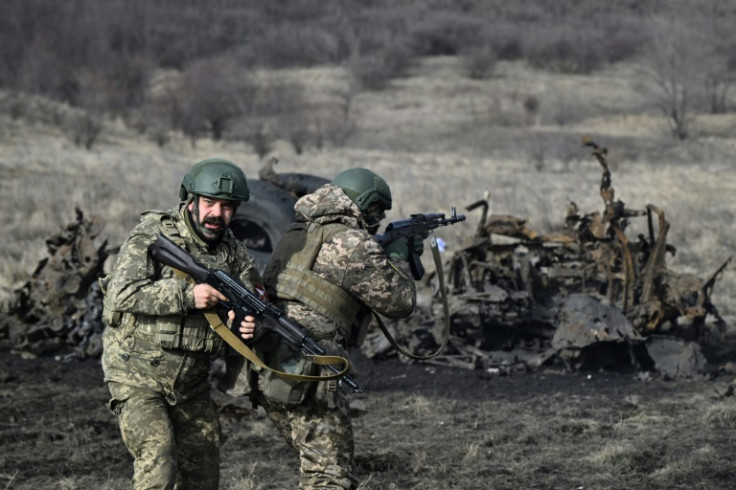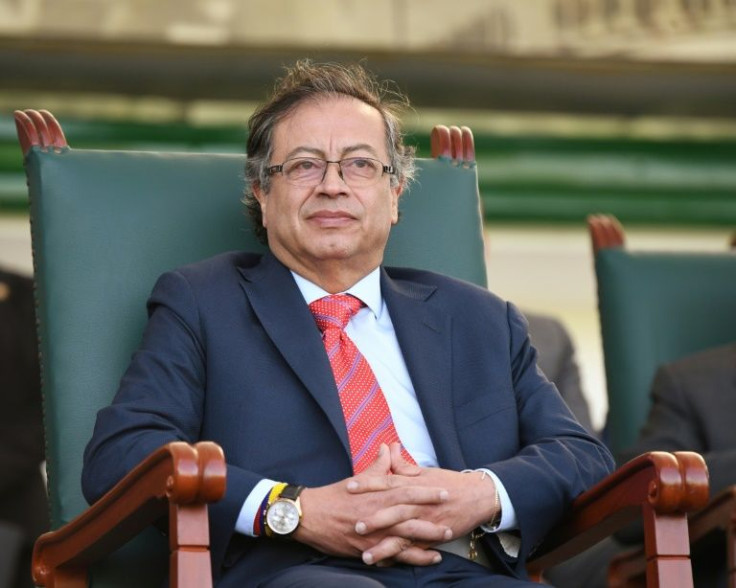
As Ukraine's war with Russia drags on and Kyiv's resources stretch thin, especially since the United States' aid stopped at the beginning of the year due to infighting in Congress, the country scrambles for resources anywhere it can get them. An unlikely source has been Colombia.
Hardened professionals, experienced from years of combats against the country's guerrillas and drug cartels, have become volunteers and joined the ranks after Volodymyr Zelenskiy's call.
Ukraine is expanding its system allowing foreigners to join the army as the combats continue, and Colombians have been drawn partly by higher wages than what they could make after leaving the army.
A report by The Associated Press explains that Colombia has Latin America's second-largest army after Brazil, with a quarter million members. And many of the 10,000 who retire each year are heading to Ukraine, where they "make four times as much as experienced non-commissioned officers earn in Colombia, or even more."
Corporals in Colombia get a basic salary of $400 a month, little over the minimum wage, $330. In Ukraine, any member of the armed forces earns a monthly salary of $3,300 depending on rank and type of service. They also get almost $30,000 if they get injured and their families get $400,000 in compensation if they get killed in action.
As the profile of volunteers reaching the Ukrainian side changes, shifting from mostly post-Soviet or English-speaking countries, its military has developed and infrastructure of Spanish-speaking recruiters, instructors and operational officers, Oleksandr Shahuri, an officer of the Department of Coordination of Foreigners in the Armed Forces of Ukraine, told AP.
Colombians joining the Ukrainian army doesn't have much to do with the government's official stance on the invasion, as President Gustavo Petro has refrained from condemning Moscow.

Neighboring Ecuador, in contrast, is weighing up sending its old Russian military equipment to the United States so that it can be transferred to Ukraine, a US official said in Quito Thursday.
Ecuador will send six Russian military helicopters, long-range rocket launchers and air defense systems to the United States. Local media reports the equipment dates back to the 1990s.
In exchange, Ecuador will receive modern weapons to confront powerful drug trafficking gangs that have the country in a chokehold.
In turn, Russia, one of the main consumers of Ecuadoran bananas, announced last week that it was banning the purchase of the fruit from five exporters from Monday. The same measure will be applied to Ecuadoran flowers.
Moscow said it took the measure because the Ecuadoran banana is affected by the humpback fly, but the local plant health control agency says the insect is neither a serious agricultural pest nor a health risk.
Noboa, in an interview with the Ecuavisa TV channel, said "we are not going to cut ties with Russia" and insisted that shipping out "scrap" military hardware was not against international law.
In the U.S., Latinos have diverse perspectives on the conflict. A recent poll by The Economist/YouGov showed that Latinos are more sympathetic Ukraine and its leadership when compared to Russia's. A significant portion, 47%, express a favorable view of Volodymyr Zelenskyy, Ukraine's president.
In contrast, 70% have an unfavorable view of Vladimir Putin — underlining larger skepticism toward Russia's role in the war.
Moreover, the majority of Latinos view Russia with distrust, as 49% consider it an enemy. However, opinions on Ukraine vary. An overall 60% have a favorable view, with 33% perceiving it as a friendly nation but not an ally — the remaining 27% see Ukraine as an outright ally. According to the poll, the majority of Hispanics, 59%, express sympathy towards Ukraine while only 4% express the sentiment towards Russia.
© 2024 Latin Times. All rights reserved. Do not reproduce without permission.

.png?w=600)





